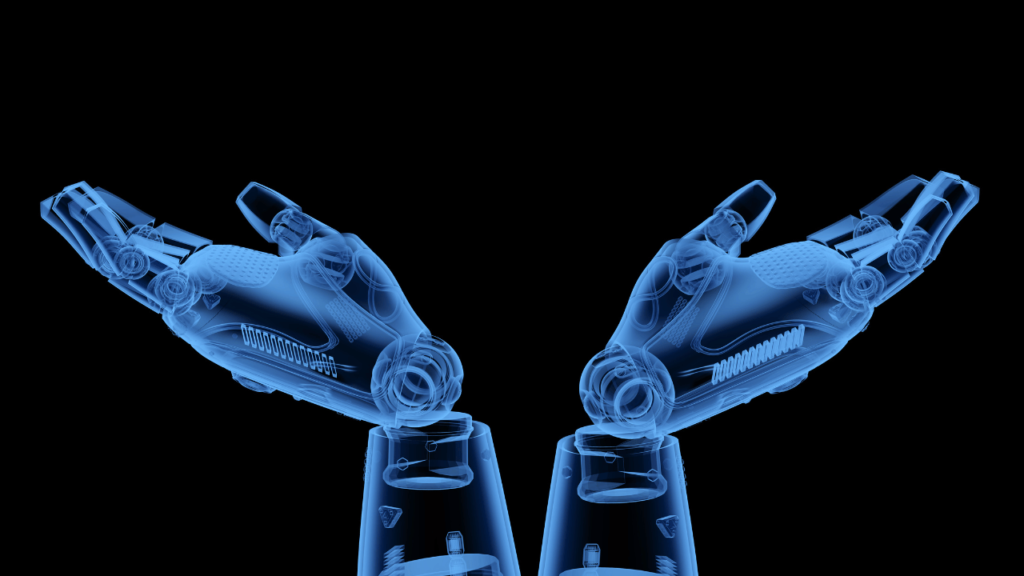Claude AI is an artificial intelligence chatbot created by Anthropic, an AI safety startup based in San Francisco. Claude was designed to be helpful, harmless, and honest through a technique called Constitutional AI. Some key features that enable Claude to achieve its design goals are:
Large Language Model Foundation

- Claude leverages a large language model at its core. Specifically, Claude uses an expanded version of Anthropic’s own Constitutional AI model, which contains approximately 20 billion parameters.
- The large size of the language model allows Claude AI to understand natural language, reason about concepts, and generate human-like responses. It gives Claude broad knowledge and conversational abilities.
- Training the language model on Constitutional AI principles constrains its behaviors to be helpful, harmless, and honest. The principles act like a “constitution” guiding the model’s actions.
Helpfulness
- Claude AI aims to provide users with helpful information and services, rather than unconstructive or pointless chatter.
- It can understand user requests and provide relevant resources, facts, or advice. For example, Claude AI can provide step-by-step instructions for how to cook a recipe if asked.
- The model is fine-tuned on a training dataset of human conversations to capture patterns of helpfulness. Researchers reward the model for giving responses rated as useful and helpful during training.
- Claude AI integrates with useful online APIs to expand its knowledge. This allows it to provide up-to-date factual information if needed.
Harmlessness
- Claude is designed to avoid generating harmful, unethical, dangerous or illegal content.
- The Constitutional AI principles explicitly prohibit malicious, negligent, deceptive, discriminatory, or prejudiced behavior.
- Potentially offensive content is filtered out during the training process. The model is optimized to maximize user satisfaction and safety.
- If Claude is uncertain how to respond safely or helpfully to a prompt, it will refrain from answering or provide a conservative response.
Honesty

- Claude aims to provide truthful information to users. It avoids generating false claims or making up facts.
- The model is constrained from pretending knowledge it does not have, overstating its capabilities, or deceiving users.
- If Claude does not know the answer to a question, it will transparently say so rather than guessing. This promotes trust between the user and assistant.
- Referencing trusted online resources allows Claude to provide accurate factual information to users. The model synthesizes these external sources honestly.
Personalization
- Claude can adapt its conversational style, tone, and responses to individual users over time. This makes interactions feel more natural and personable.
- The assistant tracks basic context about the user, such as the topics and types of requests they make. Claude tailors its speech patterns and word choices to the individual.
- Personalization makes Claude seem more thoughtful and human-like during extended conversations. The model aims to build an emotional connection with users.
Safety Mechanisms
- Several mechanisms are built into Claude to promote safety and prevent harmful responses.
- There is a classifier that flags toxic or inappropriate content before it reaches users. This acts as a safety filter.
- Particularly risky or novel responses trigger an internal review process before being returned. Responses are checked for safety by Anthropic’s engineering team.
- There are mitigations around Claude’s limitations, such as declining dangerous requests or avoiding conversations that would require expertise the model lacks.
Ongoing Improvement

- Claude’s training is continually refined by Anthropic’s researchers to expand capabilities and safety.
- As Claude interacts with more users, it gains more conversational data to learn from. This allows its performance to incrementally improve over time.
- Periodic model updates will be released that incorporate the latest learnings, new principles, and safety techniques.
- Claude seeks feedback from users to identify areas for improvement. This input is incorporated into the training process.
Conversational Abilities
- Claude can hold natural conversations spanning many topics and contexts. It is not limited to narrow domains.
- The model can engage in long-form dialogues while maintaining context, personality, and logical consistency.
- Claude aims for human-like chat abilities such as humor, empathy, and approachability during open-ended conversations.
- Users can direct the flow of conversation based on their interests. Claude is responsive to user cues and interests.
Limitations
- As an AI system, Claude has limitations in its knowledge and capabilities that users should be aware of.
- Its knowledge of the world is approximate and incomplete. Claude cannot be relied upon for definitive answers.
- Claude lacks real-world sensing and physical capabilities. It cannot take physical actions outside of conversation.
- Claude’s training data and model architecture constrain its conversational abilities. It may struggle with highly abstract or complex discussions.
- Claude will avoid conversations it judges to be unethical, dangerous, or outside its capabilities.
Transparency

- Claude and Anthropic emphasize transparency in AI. Claude discloses it is an AI assistant created by Anthropic.
- The model will be clear about its limitations and capabilities to avoid misrepresentation.
- Anthropic will provide documentation and release notes detailing Claude’s training process, architecture, and improvement over time.
- Ongoing transparency reports are planned to communicate Claude’s progress in areas like safety, capabilities, and social impact.
User Privacy
- Claude only retains minimal user data necessary for personalization and conversational context. It does not collect private user information.
- Anthropic implements privacy protections like encryption, access controls, and data retention limits.
- Users have options to delete their conversation history or turn off personalization entirely if they wish.
- Anthropic underwent third-party privacy assessments to verify Claude meets global privacy standards like GDPR.
Responsible Development
- Anthropic prioritizes AI safety, ethics and responsible development practices in building Claude.
- The team proactively identifies and mitigates risks during the research process. Claude is designed to be self-contained, not connected to physical systems.
- Claude is built using Constitutional AI principles focused on avoiding harmful behavior and promoting helpfulness. Safety is a core design priority.
- Anthropic partnered with AI safety groups to incorporate best practices for developing safe conversational AI systems.
Conclusion
In summary, Claude AI aims to provide an intelligent assistant that is helpful, harmless, and honest through design practices like Constitutional AI, ongoing safety testing, transparency, and responsible development rooted in AI ethics.
Its large language model architecture allows rich conversational abilities spanning many topics, while its principles and safety mechanisms aim to make interactions safe and trustworthy. While Claude has limitations as an AI system, Anthropic continues working to expand its capabilities and use cases.
FAQ’s
Q: What is Claude AI?
A: Claude AI is an artificial intelligence chatbot created by Anthropic to be helpful, harmless, and honest. It uses a large language model trained with Constitutional AI principles.
Q: What capabilities does Claude have?
A: Claude can understand natural language, hold conversations on many topics, provide helpful information, and adapt its responses to individual users. However, as an AI system, it has limits in its knowledge and abilities.
Q: How is Claude designed to be safe?
A: Several safety mechanisms are built into Claude, including content filters, safety classifiers, response reviews, and mitigations around its limitations. The model is also trained to avoid harmful, dangerous, or unethical content.
Q: Does Claude collect user data?
A: Claude only retains minimal data necessary for personalization and conversational context. It does not collect private user information. Anthropic implements strict privacy protections around any data.
Q: Can Claude hold up in long conversations?
A: Yes, Claude is designed for extended, coherent conversations. It can maintain context, personality, and logical consistency across multiple chat turns.
Q: What happens if Claude doesn’t know the answer to a question?
A: If Claude does not know the answer, it will transparently say so rather than guessing. Honesty about its limitations is a key design principle.
Q: How will Claude improve over time?
A: Claude’s training is continually refined through new conversational data, model updates, safety techniques, and user feedback. Periodic improvements will expand its capabilities.
Q: Does Claude have any physical capabilities?
A: No, Claude is self-contained software with no ability to sense or take physical actions outside of conversational responses. It cannot affect the real world.
Q: What differentiates Claude from other chatbots?
A: Claude stands out through its Constitutional AI principles, safety mechanisms, responsible development practices, transparency, and focus on being helpful, harmless and honest.
![Claude AI: What are the features of Claude AI? 1 Claude AI: What are the features of Claude AI? [2023]](https://cladopedia.com/wp-content/uploads/2023/09/Claude-AI-What-are-the-features-of-Claude-AI-2023.png)
7 thoughts on “Claude AI: What are the features of Claude AI?”